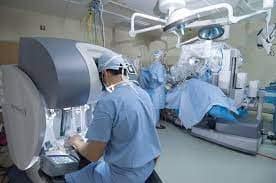مقدمه: تصمیمی که آینده شما را شکل میدهد
دریافت خبر ابتلا به سرطان روده بزرگ (کولورکتال) میتونه یکی از سختترین لحظههای زندگی باشه. تو این موقعیت، انتخابهای شما—از جراح و روش جراحی گرفته تا مرکز درمانی—نهتنها روی موفقیت درمان، بلکه روی کیفیت زندگیتون بعد از جراحی تأثیر عمیقی داره. در ایران، بهویژه در تهران، خیلی از بیماران وقتی با هزینه جراحی بالا تو بیمارستانهای خصوصی روبهرو میشوند، تردید میکنن و به سراغ گزینههای ارزانتر میروند. اما آیا انتخاب ارزونتر همیشه به صرفهست؟ تو این مقاله، توضیح میدیم چرا سرمایهگذاری روی یه جراحی باکیفیت (مثل جراحی لاپاراسکوپی توسط یه جراح متخصص) میتونه هم از نظر مالی، هم جسمی و روحی به نفع شما باشه و چطور این انتخاب میتونه زندگیتون رو نجات بده.
چرا هزینه جراحی سرطان روده متفاوت است؟
هزینه جراحی سرطان روده بزرگ در ایران، بهویژه تو شهرهای بزرگی مثل تهران، شیراز، یا اصفهان، از چند ده میلیون تومن تا چند صد میلیون تومن متفاوته. این تفاوت به عوامل مختلفی بستگی داره:
- تخصص و تجربه جراح: جراحهای متخصص سرطان کولورکتال که سالها تجربه دارن و تو روشهای پیشرفته مثل لاپاراسکوپی مهارت دارن، معمولاً دستمزد بیشتری میگیرن. این مهارت میتونه تفاوت بین یه جراحی موفق و یه جراحی پرعارضه رو رقم بزنه.
- روش جراحی: جراحیهای لاپاراسکوپی ، که با برشهای کوچیک و ابزارهای پیشرفته انجام میشن، هزینه جراحی بیشتری دارن. اما این روشها بهبودی سریعتر، درد کمتر، و عوارض کمتری دارن مقایسه با جراحی باز.
- امکانات بیمارستان: بیمارستانهای خصوصی مجهز، مثل اونایی که اتاقهای عمل پیشرفته، تیمهای بیهوشی حرفهای، و بخشهای مراقبت ویژه دارن، هزینه جراحی بیشتری دریافت میکنن. این امکانات خطر عوارض رو کم میکنه.
- مراقبتهای قبل و بعد از جراحی: مراکز معتبر معمولاً برنامههای جامعتری برای آمادهسازی بیمار قبل از جراحی و مراقبتهای بعد از اون دارن، مثل مشاوره تغذیه یا فیزیوتراپی، که به بهبودی بهتر کمک میکنه.
- تکنولوژی و تجهیزات: استفاده از دستگاههای مدرن مثل لاپاراسکوپهای پیشرفته یا سیستمهای تصویربرداری دقیق، هزینه جراحی رو بالا میبره، ولی دقت جراحی رو بیشتر میکنه.
چرا جراحی ارزانتر ممکنه هزینههای پنهان بیشتری داشته باشه؟
بسیاری از بیماران، بهویژه تو ایران که هزینههای پزشکی میتونه فشار مالی زیادی بیاره، به خاطر قیمت کمتر سراغ مراکز یا جراحهایی میرن که امکانات محدودتری دارن یا از روشهای قدیمیتر (مثل جراحی باز) استفاده میکنن. اما این انتخاب میتونه به مشکلات جدی منجر بشه:
- عوارض جراحی: جراحیهایی که با دقت یا تجهیزات کافی انجام نشن، ممکنه باعث عفونت، خونریزی داخلی، یا آسیب به روده و بافتهای اطراف بشن. درمان این عوارض گاهی هزینهای چند برابر جراحی اولیه داره، به علاوه درد و رنجی که بیمار متحمل میشه.
- بستری طولانیتر: روشهای قدیمیتر معمولاً نیاز به بستری طولانیتر تو بیمارستان دارن—گاهی تا دو هفته یا بیشتر. این یعنی هزینههای اضافی برای بیمارستان، داروها، و حتی مرخصی از کار.
- نیاز به جراحیهای مجدد: اگه تو جراحی اولیه تومور سرطان بهطور کامل برداشته نشه یا عوارضی مثل فیستول روده پیش بیاد، بیمار ممکنه نیاز به عملهای بعدی داشته باشه. این نهتنها هزینه مالی، بلکه استرس روانی و جسمی زیادی به همراه داره.
- کیفیت زندگی پایینتر: عوارضی مثل درد مزمن، مشکلات گوارشی (مثل اسهال دائمی)، یا حتی بازگشت سرطان میتونه زندگی روزمره بیمار رو مختل کنه و هزینههای درمان طولانیمدت رو افزایش بده.
- تأثیر روانی: عوارض جراحی ناموفق میتونه باعث افسردگی، اضطراب، و کاهش اعتماد به سیستم درمانی بشه، که خودش یه هزینه غیرمستقیمه.
یه مثال واقعی (بدون ذکر نام): بیماری تو تهران به خاطر هزینه کمتر تو یه مرکز معمولی جراحی باز انجام داد. چند ماه بعد، به خاطر عفونت شدید و نیاز به جراحی دوم، نهتنها هزینهای بیشتر از جراحی اولیه پرداخت کرد، بلکه ماهها از کار و زندگی عادی دور موند. در مقابل، بیمار دیگهای که جراحی لاپاراسکوپی تو یه بیمارستان مجهز انجام داد، تو کمتر از ۱۰ روز به کارش برگشت و حالا زندگی سالمی داره.
مزایای سرمایهگذاری روی جراحی باکیفیت سرطان روده
انتخاب یه جراح ماهر و روش پیشرفته (مثل لاپاراسکوپی) فواید زیادی داره که ارزش هزینه بیشتر رو کاملاً توجیه میکنه. چیزی که خیلی از بیماران نمیبینن، اقدامات پشت صحنهایه که ایمنی و موفقیت جراحی رو تضمین میکنه. این اقدامات گرچه برای بیمار قابل لمس نیستن، اما تو آمار جراحیهای موفق و ایمن ما کاملاً خودشون رو نشون میدن:
- کاهش چشمگیر عوارض: جراحی لاپاراسکوپی با برشهای کوچیک (چند سانتیمتری) انجام میشه، که خطر عفونت، خونریزی، و جای زخم رو به حداقل میرسونه. علاوه بر این، استفاده از ابزارهایی مثل پمپ پنوماتیک حین جراحی، جریان خون رو تو پاها تنظیم میکنه و از لخته شدن خون (ترومبوز) جلوگیری میکنه—یه عارضه خطرناک که ممکنه بیمار اصلاً متوجه اهمیتش نشه.
- دقت بالاتر با فناوری پیشرفته: تو جراحی لاپاراسکوپی، ما از ICG (Indocyanine Green) استفاده میکنیم، یه ماده فلورسنت که با تزریق به بدن و استفاده از دوربینهای خاص، جریان خون تو روده رو به جراح نشون میده. این فناوری کمک میکنه تا جراح مطمئن بشه روده بهخوبی خونرسانی میشه و خطر نشت روده (آناستوموز) یا عوارض دیگه کم بشه. این اقدام گرچه برای بیمار قابل دیدن نیست، اما نتیجه نهایی جراحی رو به شدت بهتر میکنه.
- بهبودی سریعتر: بیماران لاپاراسکوپی معمولاً تو ۳-۵ روز از بیمارستان مرخص میشن و تو ۱-۲ هفته میتونن فعالیتهای سبک رو از سر بگیرن، در حالی که جراحی باز ممکنه تا ۶ هفته بهبودی نیاز داشته باشه. این سرعت بهبودی به لطف دقت بالای روشها و ابزارهای پیشرفتهست.
- کیفیت زندگی بهتر: با کاهش عوارض و درد، بیماران میتونن به زندگی فعال و عادی برگردن، بدون مشکلات طولانیمدت گوارشی یا جسمی. مثلاً بیمارانی که با روشهای پیشرفته جراحی شدن، کمتر با مشکلاتی مثل درد مزمن یا اختلالات روده مواجه میشن.
- آرامش خاطر برای بیمار و خانواده: وقتی میدونید جراحیتون تو یه مرکز مجهز با ابزارهای مدرن و تیمی حرفهای انجام شده، استرس و نگرانیتون کمتر میشه. این آرامش روانی برای بهبودی هم خیلی مهمه.
- اقدامات پنهان اما حیاتی: علاوه بر پمپ پنوماتیک و ICG، ما از پروتکلهای ایمنی پیشرفته، مثل کنترل دقیق عفونت تو اتاق عمل و مانیتورینگ لحظهای بیمار، استفاده میکنیم. این اقدامات هزینهبرن، اما باعث میشن آمار موفقیت جراحیهامون بالا باشه و بیماران با اطمینان کامل درمان بشن.
چطور هزینه جراحی را مدیریت کنیم؟
ما کاملاً درک میکنیم که هزینه جراحی تو بیمارستانهای خصوصی، بهویژه تو تهران، میتونه برای خیلی از بیماران نگرانکننده باشه. تو بیمارستان ما، هزینههای جراحی بهصورت کامل و نقدی دریافت میشه، اما خبر خوب اینه که بیماران میتونن با ارائه مدارک پزشکی و فاکتورهای بیمارستان، بخش قابل توجهی از هزینهها رو از بیمه تکمیلیشون بازپرداخت بگیرن. در ادامه چند راهکار برای مدیریت هزینهها پیشنهاد میکنیم:
- استفاده از بیمه تکمیلی: بسیاری از شرکتهای بیمه تکمیلی تو ایران، مثل بیمه سامان، آتیهسازان، یا ایران، هزینه جراحی سرطان روده رو (تا سقف مشخص) پوشش میدن. قبل از جراحی، با بیمهتون تماس بگیرید و مدارک لازم رو جویا بشید. بیمارستان ما فاکتورها و مدارک کامل رو در اختیارتون قرار میده تا بتونید بهراحتی بازپرداخت بگیرید.
- برنامهریزی مالی: با توجه به اینکه هزینهها نقدی پرداخت میشه، میتونید از قبل با مشاوران مالی بیمارستان ما صحبت کنید تا بر اساس بودجهتون برنامهریزی کنید. ما تمام تلاشمون رو میکنیم تا روند پرداخت شفاف و ساده باشه.
- تمرکز روی هزینههای بلندمدت: به جای فقط نگاه کردن به هزینه جراحی اولیه، به هزینههای احتمالی عوارض، بستری طولانی، یا جراحیهای بعدی فکر کنید. یه جراحی باکیفیت میتونه در نهایت صرفهجویی مالی و جسمی زیادی داشته باشه.
- مشاوره رایگان: ما تو iran-colorectal.com مشاوره اولیه رایگان ارائه میدیم تا بتونید همه گزینهها، هزینهها، و جزئیات بازپرداخت بیمه رو با خیال راحت بررسی کنید. تو این مشاوره، میتونیم به سوالاتتون درباره جراحی، هزینهها، و مدارک لازم برای بیمه جواب بدیم.
چرا کلینیک ما بهترین انتخاب برای جراحی سرطان روده است؟
تو کلینیک ما، هدفمون فقط درمان سرطان کولورکتال نیست؛ ما میخوایم بیمارانمون بعد از جراحی زندگی سالم و باکیفیتی داشته باشن. چند دلیل برای انتخاب ما:
- تخصص و تجربه:دکتر یوسف فام سالها تجربه تو جراحیهای پیچیده سرطان روده دارن و تو روشهای پیشرفته لاپاراسکوپی مهارت دارن.
- تکنولوژی مدرن: از جدیدترین تجهیزات لاپاراسکوپی مثل رنگ امیزی ICG و به روز ترین تکنیکهای جراحی و دوخت روده استفاده میکنیم تا ایمنی و موفقیت جراحی رو به حداکثر برسونیم.
- تیم حرفهای: از مشاوره اولیه تا مراقبتهای بعد از جراحی، یه تیم کامل از پزشکان، پرستاران، و مشاوران تغذیه کنار شما هستن.
- شفافیت مالی: ما هزینهها و مدارک لازم برای بازپرداخت بیمه رو بهصورت کامل و شفاف در اختیارتون قرار میدیم تا بتونید از پوشش بیمهتون حداکثر استفاده رو بکنید. در مرکز ما هیچ هزینه جدایی بابت هزینه عمل و دستیار و غیره دریافت نمی شود و تمام هزینه ها به صورت مستقیم و از طریق صندوق بیمارستان پرداخت میشود.
- نتایج اثباتشده: داستانهای موفقیت بیمارانمون (با رعایت حریم خصوصی) نشوندهنده تعهد ما به کیفیت و بهبودی کامل بیمارانه.
جمعبندی: سلامت شما ارزش سرمایهگذاری را دارد , سلامت شما جای مناسبی برای صرفه جویی نیست
انتخاب جراح و مرکز درمانی برای سرطان روده یه تصمیم حیاتیه که فراتر از یه انتخاب مالیه. یک جراحی باکیفیت، مثل جراحی لاپاراسکوپی تو یه بیمارستان مجهز با ابزارهایی مثل پمپ پنوماتیک و ICG، ممکنه هزینه جراحی اولیه بیشتری داشته باشه، اما با کاهش عوارض، بهبودی سریعتر، و نتایج بهتر، در نهایت هم از نظر مالی، هم جسمی و روحی به نفع شماست. تو بیمارستان ما، هزینهها بهصورت نقدی دریافت میشه، اما با ارائه مدارک کامل، میتونید بخش زیادی از هزینهها رو از بیمه تکمیلیتون پس بگیرید. سلامت شما و آرامش خانوادهتون ارزش این سرمایهگذاری رو داره. اگه دنبال یه جراح متخصص و روشهای پیشرفته برای درمان سرطان کولورکتال تو تهران یا هر جای ایران هستید، ما تو iran-colorectal.com آمادهایم تا همراه شما باشیم.
در صورتیکه سرطان روده برای شما یا عزیزانتان به تازگی تشخیص داده شده حتما عنوان زیر را هم مطالعه کنید :
اولین اقدامات پس از تشخیص سرطان روده (کولون و رکتوم): راهنمای گامبهگام برای بیماران تازه تشخیص دادهشده



